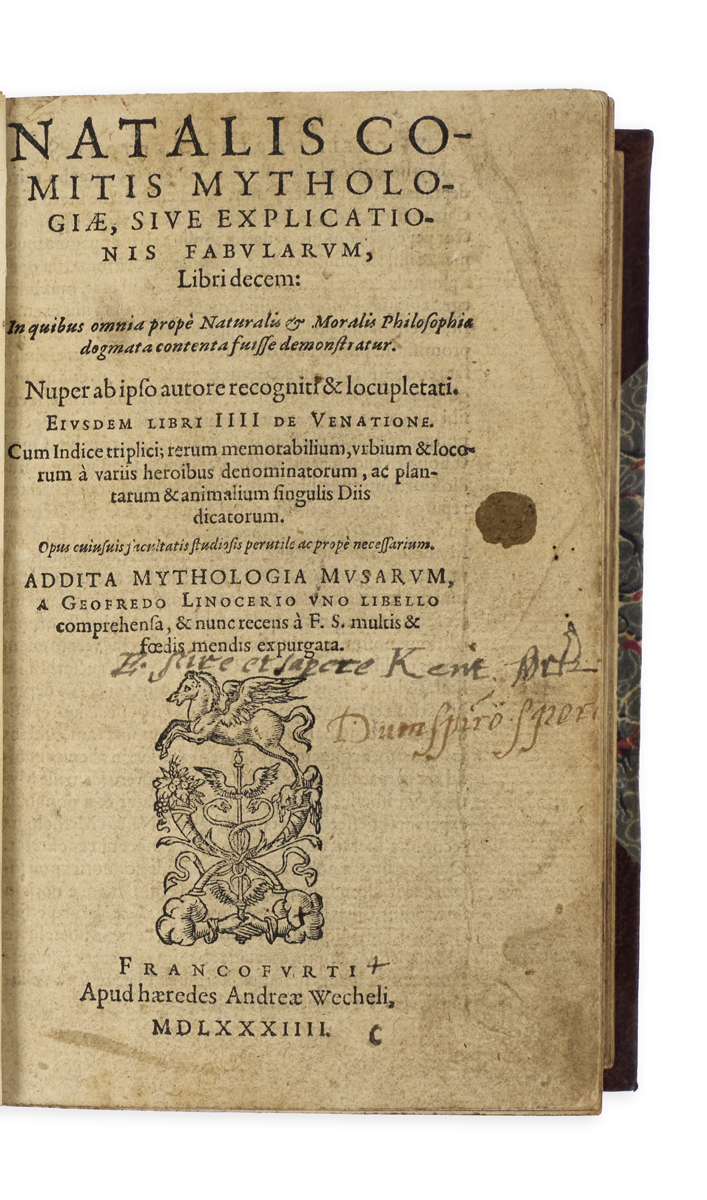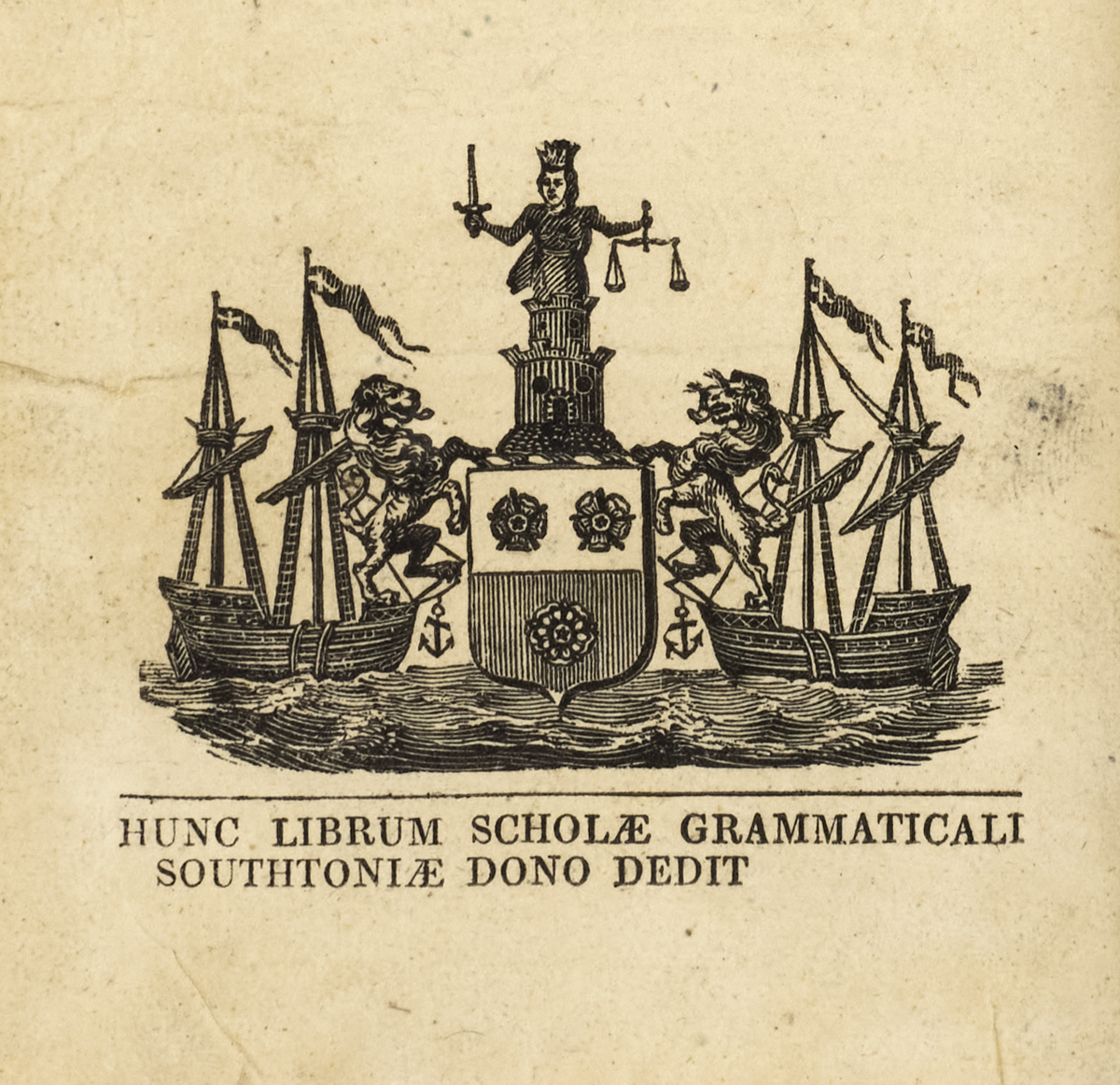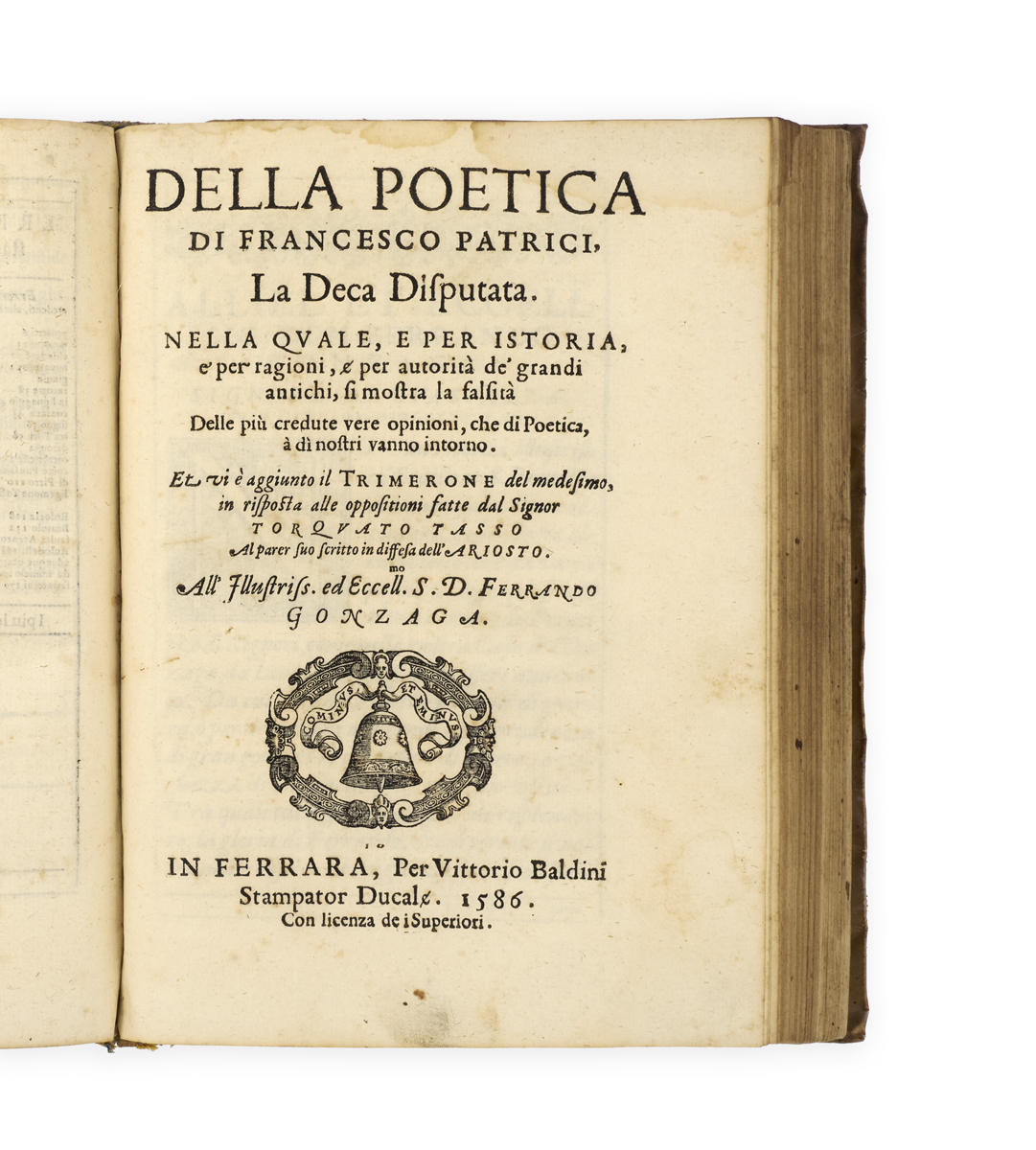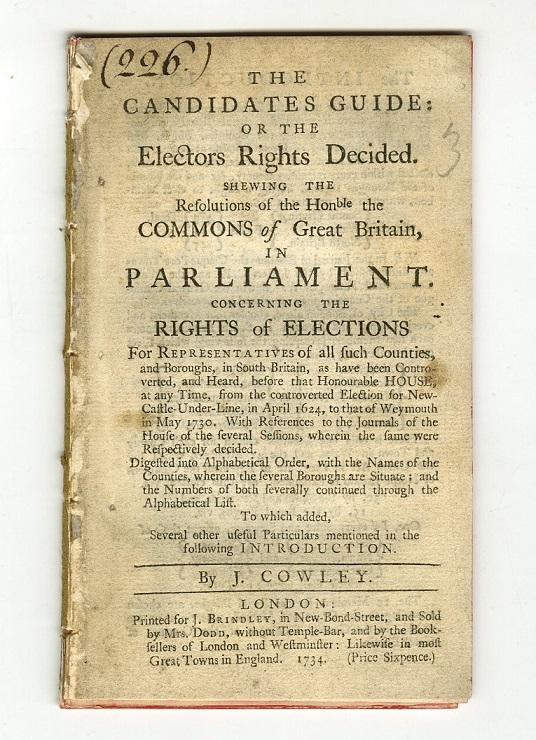

CONTI, Natale.
Mythologiæ, sive explicationis fabularum, libri decem. In quibus omnia propè naturalis & moralis philosophiæ dogmata contenta fuisse demonstratur. Nuper ab ipso autore recogniti & locupletati. Eiusdem libri IIII De Venatione … Addita Mythologia musarum, a Geofredo Linocerio uno libello comprehensa, & nunc recens à F. S. multis & fœdis mendis expurgata.
Frankfurt, the heirs of André Wechel, 1584.
8vo, pp. [16], 1137, [54 (index)], 1138-1193, [1]; with woodcut Wechel device to title-page and final page; a few headlines shaved, old tears to N2 and P1 repaired, but a good copy in modern half-morocco; two early mottos to title-page in English hands, a few scattered marginal notes, early nineteenth-century armorial gift label ‘Hunc librum scholæ grammaticali Southtoniæ dono dedit’, with the arms of the city of Southampton; bookplate and cover-stamp of King Edward VI School Southampton.

Added to your basket:
Mythologiæ, sive explicationis fabularum, libri decem. In quibus omnia propè naturalis & moralis philosophiæ dogmata contenta fuisse demonstratur. Nuper ab ipso autore recogniti & locupletati. Eiusdem libri IIII De Venatione … Addita Mythologia musarum, a Geofredo Linocerio uno libello comprehensa, & nunc recens à F. S. multis & fœdis mendis expurgata.
The Mythologiae of Natale Conti (Natalis Comes), first published Venice 1567, was a standard reference work for classical mythology in the later Renaissance, treating the corpus as allegories that syncretized ancient philosophy and could thus be decoded by the initiated reader.
The printer André Wechel had been forced to flee Paris after the St Bartholomew’s Day massacre in 1572, settling in Frankfurt, where he played host to Sir Philip Sidney and Hubert Languet. His expanded 1581 edition of Conti’s Mythologiae, prepared and corrected by his employees Johannes Opsopeus and Friedrich Sylburg (he proudly boasts of its accuracy at the end), appeared shortly before his death on 1 November. The present 1584 edition prints for the first time a letter of thanks from Conti to Wechel (dated December 1581), and also includes a study of the muses by Geoffroi Linocier (pp. 1443-1184, first published Paris 1583), with notes by Sylberg.
King Edward VI School in Southampton was founded by royal charter in 1553; Isaac Watts was a pupil at the end of the seventeenth century.

